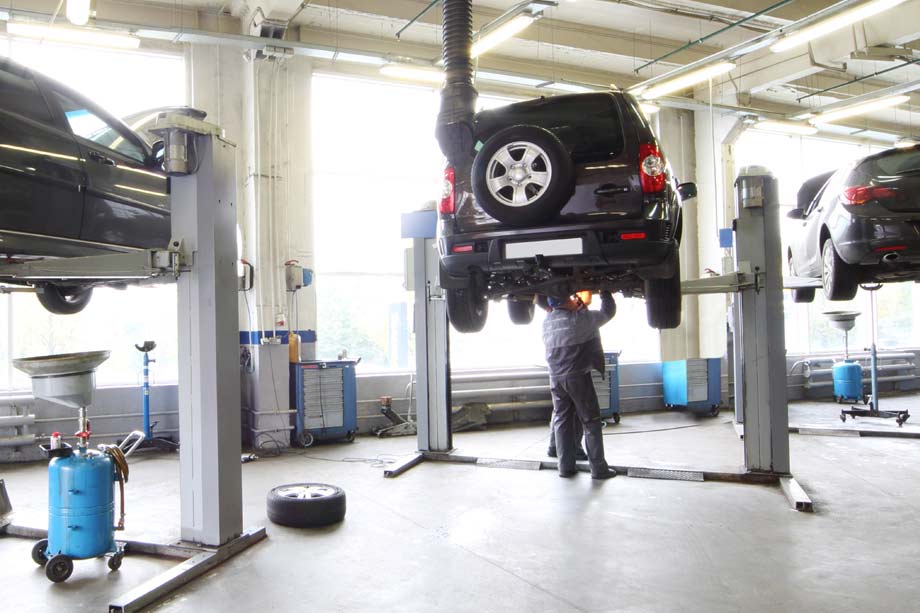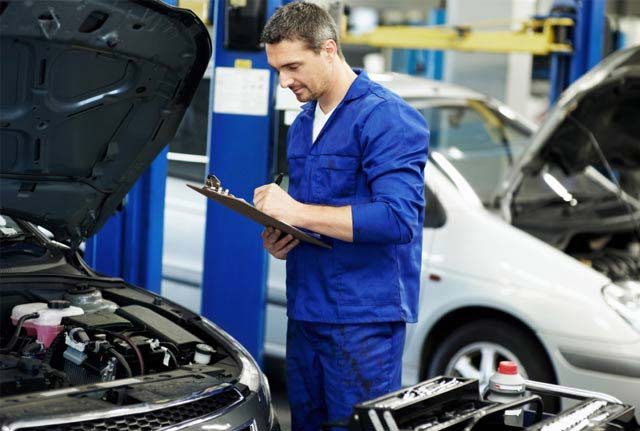All Categories
Featured
When it concerns preserving a vehicle, recognizing the distinctions between regular repair and maintenance is essential for auto proprietors. Both facets are needed for the durability and dependability of your auto, but they offer unique purposes and are dealt with in a different way. By knowing when to do normal maintenance versus when to attend to repair work, you can maintain your lorry running efficiently and avoid pricey shocks.
![]()
Routine Maintenance: Avoidance is Secret. Routine maintenance involves the routine, preventive care that your automobile needs to avoid future problems. It is generally arranged at certain intervals, such as every 3,000 or 5,000 miles, based on your lorry's guidebook or supplier referrals. Routine maintenance assists make sure that your automobile remains in optimal condition, stopping damage from causing significant problems down the line.
Some typical instances of routine upkeep consist of:
Oil Adjustments: Regular oil adjustments are important to keep your engine lubed and running successfully. Oil assists reduce rubbing in between engine components, preventing getting too hot and unnecessary wear. Tire Upkeep: This consists of tire turnings, balancing, and inspecting tire stress. Proper tire upkeep guarantees much better fuel performance, managing, and tire longevity. Brake Inspections: Routine look at your brakes, consisting of pads and liquid levels, can catch any type of potential issues early, preventing brake failure and making certain safety. Liquid Checks and Top-Ups: Guaranteeing your car has the right levels of coolant, transmission liquid, power steering liquid, and brake liquid is essential for overall automobile health and wellness. Air Filter Substitute: Changing the air filter ensures that your engine obtains tidy air, which assists it run more effectively and minimizes engine strain. Regular upkeep is usually arranged and doesn't involve repairing any kind of damaged parts-- it has to do with keeping every little thing in good functioning order and stopping future failures.
Services: Dealing With the Unexpected. Repair services, on the other hand, are required when something goes incorrect with your vehicle. Repairs address problems that affect the auto's efficiency or security and need to be repaired asap. Unlike upkeep, which is preventative, repair work usually happen when components have actually worn, fell short, or malfunctioned.
Examples of usual fixings consist of:
Transmission Issues: If your cars and truck is having difficulty shifting equipments or experiences sliding, the transmission might need fixings or replacement. Engine Failing: If your engine starts misfiring, getting too hot, or stalling, it may require substantial repair work or replacement of elements like the timing belt, pistons, or seals. Brake Repairs: While brake pads become part of routine maintenance, if your brakes are making a grinding noise or are no more operating properly, brake fixings will certainly be needed, such as changing the calipers or the blades. Battery Replacement: If your car will not begin or the battery is no more holding a charge, you'll need a substitute battery, which is a repair. Suspension and Guiding Repairs: Issues with the suspension or steering system-- such as trouble guiding or a rough trip-- can be indications that parts like struts or shock absorbers require repair work. Repair work are typically extra immediate and pricey than routine maintenance. They are required when something breaks or breakdowns, which can influence the automobile's performance and security.
Key Differences Between Regular Maintenance and Fixings. Timing: Routine maintenance is preventive and performed at set up intervals, while fixings are reactive and occur when something goes wrong. Cost: Maintenance is typically cheaper, as it involves checking and changing smaller sized parts or liquids. Fixings, specifically major ones, often tend to be a lot more expensive as a result of the intricacy of repairing busted or defective elements. Purpose: The goal of maintenance is to maintain your cars and truck running well and avoid problems. Fixings, on the other hand, are needed to repair issues that have actually already taken place. Frequency: Regular maintenance occurs regularly at established periods (e.g., every 5,000 miles), while repair services are much less predictable, frequently happening when components stop working or use out unexpectedly. Why Both are necessary. Both routine repair and maintenance are vital for the long-term wellness of your car. Regular upkeep aids keep your auto running efficiently and can stop lots of typical issues from establishing to begin with. By remaining on top of arranged solutions, you can resolve small issues before they turn into expensive repair work.
![]()
However, fixings are occasionally unavoidable. Despite having the finest maintenance, components break over time, and unforeseen problems can occur. Addressing them without delay can avoid further damage and guarantee your car's safety and security and reliability. when fixings are needed.
Final thought. In summary, recognizing the difference between regular repair and maintenance aids you take the appropriate steps to look after your car. Routine maintenance can conserve you money by stopping bigger concerns, while fixings are necessary when something goes incorrect. By remaining positive with upkeep and attending to fixings when required, you can expand the life-span of your car and guarantee that it remains to perform at its finest for several years to come.

Routine Maintenance: Avoidance is Secret. Routine maintenance involves the routine, preventive care that your automobile needs to avoid future problems. It is generally arranged at certain intervals, such as every 3,000 or 5,000 miles, based on your lorry's guidebook or supplier referrals. Routine maintenance assists make sure that your automobile remains in optimal condition, stopping damage from causing significant problems down the line.
Some typical instances of routine upkeep consist of:
Oil Adjustments: Regular oil adjustments are important to keep your engine lubed and running successfully. Oil assists reduce rubbing in between engine components, preventing getting too hot and unnecessary wear. Tire Upkeep: This consists of tire turnings, balancing, and inspecting tire stress. Proper tire upkeep guarantees much better fuel performance, managing, and tire longevity. Brake Inspections: Routine look at your brakes, consisting of pads and liquid levels, can catch any type of potential issues early, preventing brake failure and making certain safety. Liquid Checks and Top-Ups: Guaranteeing your car has the right levels of coolant, transmission liquid, power steering liquid, and brake liquid is essential for overall automobile health and wellness. Air Filter Substitute: Changing the air filter ensures that your engine obtains tidy air, which assists it run more effectively and minimizes engine strain. Regular upkeep is usually arranged and doesn't involve repairing any kind of damaged parts-- it has to do with keeping every little thing in good functioning order and stopping future failures.
Services: Dealing With the Unexpected. Repair services, on the other hand, are required when something goes incorrect with your vehicle. Repairs address problems that affect the auto's efficiency or security and need to be repaired asap. Unlike upkeep, which is preventative, repair work usually happen when components have actually worn, fell short, or malfunctioned.
Examples of usual fixings consist of:
Transmission Issues: If your cars and truck is having difficulty shifting equipments or experiences sliding, the transmission might need fixings or replacement. Engine Failing: If your engine starts misfiring, getting too hot, or stalling, it may require substantial repair work or replacement of elements like the timing belt, pistons, or seals. Brake Repairs: While brake pads become part of routine maintenance, if your brakes are making a grinding noise or are no more operating properly, brake fixings will certainly be needed, such as changing the calipers or the blades. Battery Replacement: If your car will not begin or the battery is no more holding a charge, you'll need a substitute battery, which is a repair. Suspension and Guiding Repairs: Issues with the suspension or steering system-- such as trouble guiding or a rough trip-- can be indications that parts like struts or shock absorbers require repair work. Repair work are typically extra immediate and pricey than routine maintenance. They are required when something breaks or breakdowns, which can influence the automobile's performance and security.
Key Differences Between Regular Maintenance and Fixings. Timing: Routine maintenance is preventive and performed at set up intervals, while fixings are reactive and occur when something goes wrong. Cost: Maintenance is typically cheaper, as it involves checking and changing smaller sized parts or liquids. Fixings, specifically major ones, often tend to be a lot more expensive as a result of the intricacy of repairing busted or defective elements. Purpose: The goal of maintenance is to maintain your cars and truck running well and avoid problems. Fixings, on the other hand, are needed to repair issues that have actually already taken place. Frequency: Regular maintenance occurs regularly at established periods (e.g., every 5,000 miles), while repair services are much less predictable, frequently happening when components stop working or use out unexpectedly. Why Both are necessary. Both routine repair and maintenance are vital for the long-term wellness of your car. Regular upkeep aids keep your auto running efficiently and can stop lots of typical issues from establishing to begin with. By remaining on top of arranged solutions, you can resolve small issues before they turn into expensive repair work.

However, fixings are occasionally unavoidable. Despite having the finest maintenance, components break over time, and unforeseen problems can occur. Addressing them without delay can avoid further damage and guarantee your car's safety and security and reliability. when fixings are needed.
Final thought. In summary, recognizing the difference between regular repair and maintenance aids you take the appropriate steps to look after your car. Routine maintenance can conserve you money by stopping bigger concerns, while fixings are necessary when something goes incorrect. By remaining positive with upkeep and attending to fixings when required, you can expand the life-span of your car and guarantee that it remains to perform at its finest for several years to come.
Latest Posts
Why Chicago Drivers Prefer Montclare Auto Repair for Dependable Service and Huge Savings
Published en
1 min read
Discover Brake Repair & More: Full Services Guide from Montclare Auto Repair
Published en
1 min read
Don’t Miss Special Auto Repair Specials in Chicago at Montclare Auto Repair
Published en
1 min read
More
Latest Posts
Why Chicago Drivers Prefer Montclare Auto Repair for Dependable Service and Huge Savings
Published May 30, 25
1 min read
Discover Brake Repair & More: Full Services Guide from Montclare Auto Repair
Published May 29, 25
1 min read
Don’t Miss Special Auto Repair Specials in Chicago at Montclare Auto Repair
Published May 26, 25
1 min read